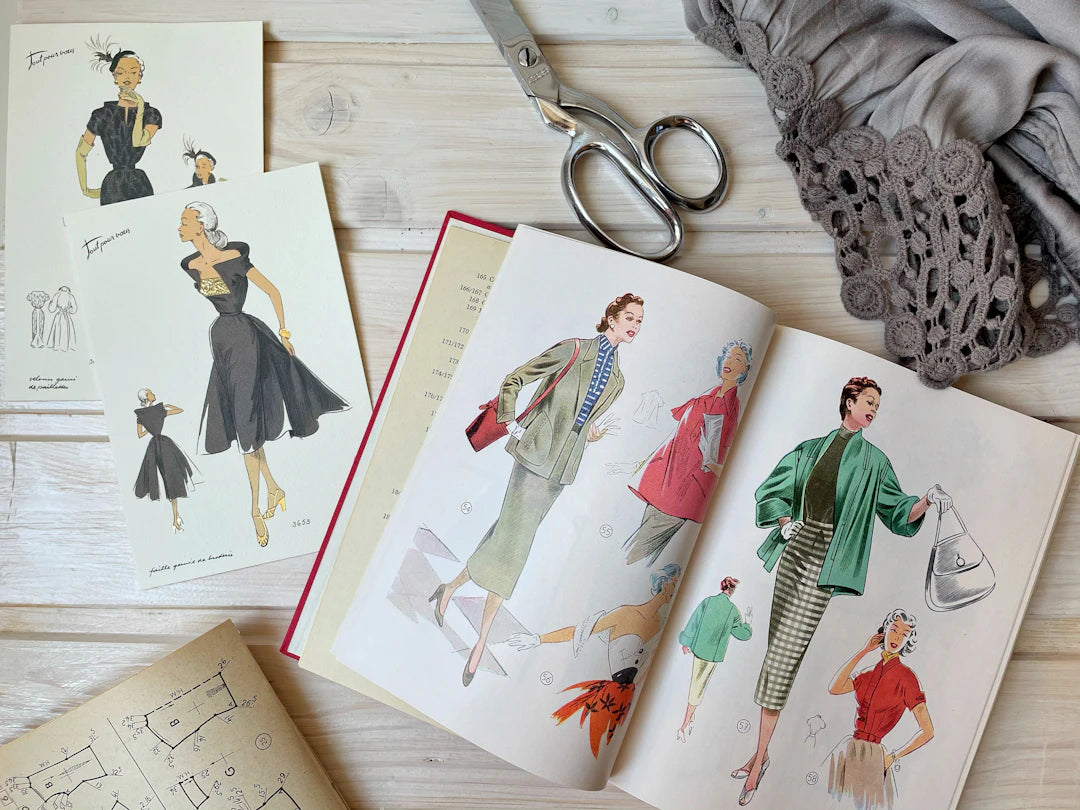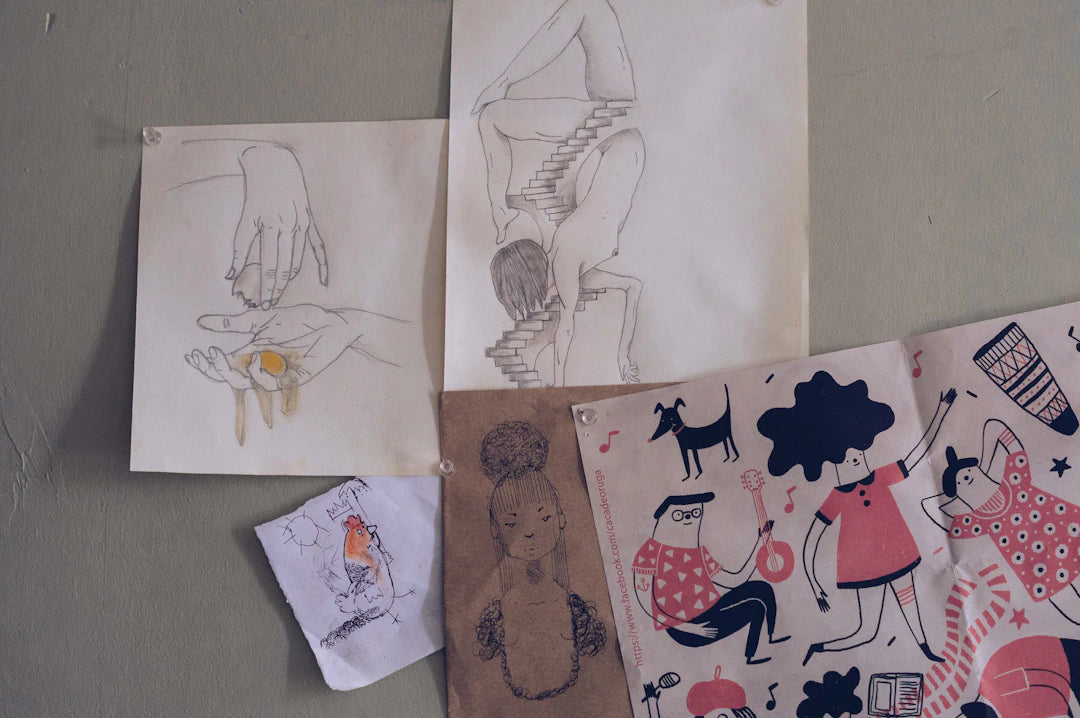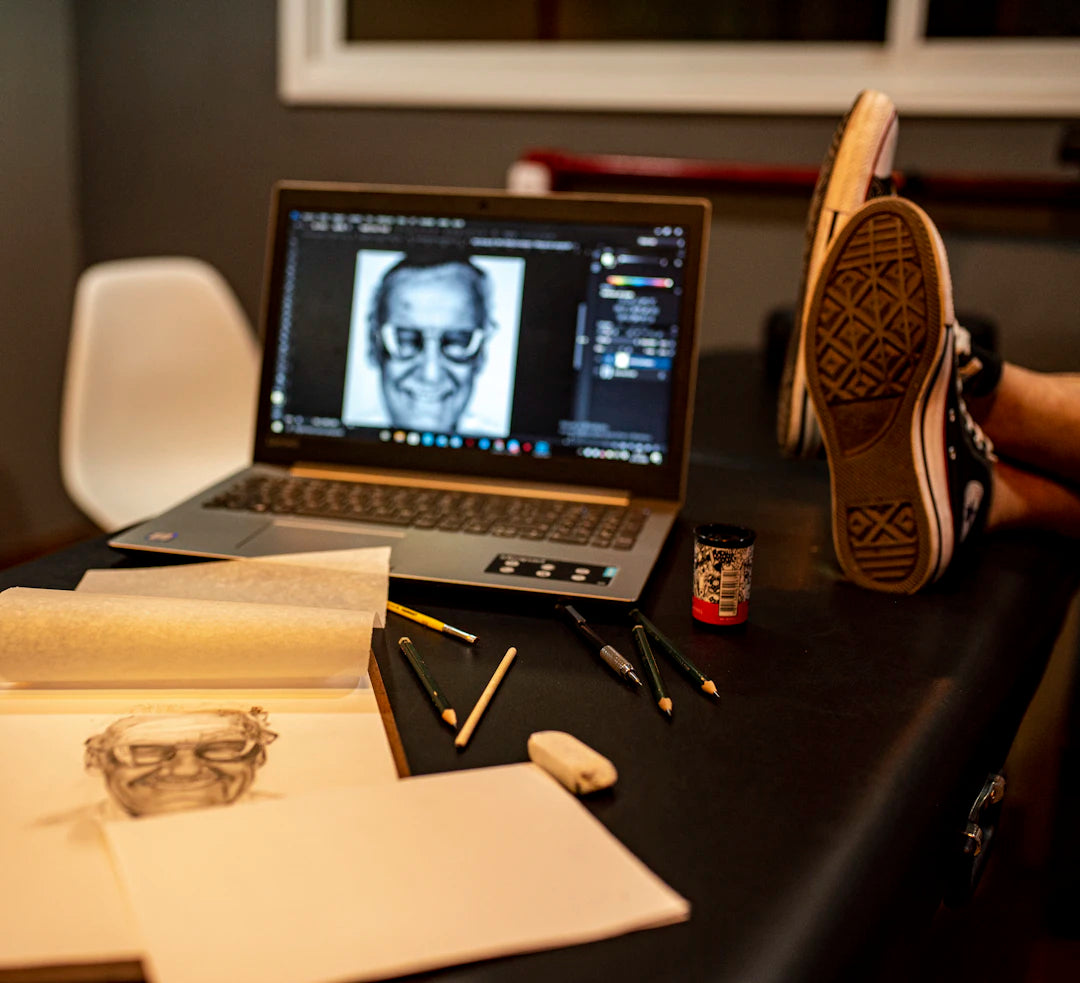Overview
This blog explores the differences between watercolor and texture brushes in fashion design, providing insights on their characteristics, usage techniques, and the benefits of combining both types for realistic sketches. It also offers tool recommendations, tips for enhancing sketch quality, and encourages regular practice and feedback to improve skills.
Frequently Asked Questions
1. What are watercolor brushes used for in fashion design?
2. How can I effectively use texture brushes in my fashion sketches?
3. What is the advantage of using both watercolor and texture brushes together?
4. What tools are recommended for digital fashion sketching?
5. How can regular practice enhance my fashion sketching skills?
As a digital artist diving into the world of fashion design, choosing the right brush can dramatically alter your creative process. Brushes are more than just tools; they are extensions of our artistic expression. This article will explore the fascinating differences between watercolor brushes and texture brushes, especially in the context of fashion drawing techniques. Whether you are a novice or seasoned designer, understanding these brush types can elevate your designs and even enrich your fashion design kit.
Exploring Watercolor Brushes
Watercolor brushes emulate the flowing essence of traditional watercolor paints. They allow artists to experiment with color blending and transparency, creating beautiful washes and fluid motions. Here’s a breakdown of what makes watercolor brushes special:
Characteristics of Watercolor Brushes
- Fluidity: Watercolor brushes provide a smooth, flowing effect, perfect for capturing garments' delicate textures.
- Opacity Control: Artists can play with different opacities, enabling a soft layering technique.
- Blending Capabilities: They allow for seamless transitions between colors, which is essential in creating realistic fabric representations.
How to Use Watercolor Brushes in Fashion Design
To maximize the potential of watercolor brushes, follow these steps:
- Select the Right Brush: Choose a watercolor brush that suits your desired effect. Tools like Procreate offer a variety of preset watercolor brushes that you can experiment with.
- Layer Gradually: Begin with lighter colors, layering gradually to create depth. This technique mimics the natural build-up of watercolors and depth in fabrics.
- Utilize the Smudge Tool: This tool can help blend areas and create softness that contrasts beautifully with bolder sketches.
Diving into Texture Brushes
Texture brushes differ significantly from watercolor brushes; they add intricate details and surfaces, making them indispensable for fashion designers aiming to capture texture intricacies. Here’s everything you need to know:
Characteristics of Texture Brushes
- Detailing: Texture brushes excel at adding intricate details like folds, fabric weaves, and patterns creating authenticity in fashion sketches.
- Unique Styles: Each texture brush can give a unique feel, whether rough, soft, or rigid, allowing for an assortment of visual outcomes.
- Pattern Creation: Ideal for integrating repeating designs into fabric styles, essential for any fashion design kit.
How to Use Texture Brushes Effectively
Here are key techniques to make the best of your texture brushes:
- Layering Techniques: Combine texture brushes with base colors to give depth and dimension to your designs.
- Adjust Brush Settings: Don’t hesitate to modify the brush size, shape, and opacity to better fit your needs. Procreate has an excellent range of customizable settings.
- Experiment: Play around with different textures to see what suits your style. Sometimes, a diverse texture palette can inspire unexpected ideas!
Real Use Cases of Combining Brush Types in Fashion Sketches
Utilizing both watercolor and texture brushes can take your fashion sketches to another level. Here are some examples and tips on how to combine these tools effectively:
Casual Wear Design
When sketching casual wear, such as dresses or skirts, start with watercolor brushes to create a base layer. Lay down your primary colors softly. Once dry (or masked, in digital terms!), switch to a texture brush to add fabric details like jeans' denim weave or t-shirt ribbing. This combination creates a realistic portrayal of how different fabrics interact with one another.
Formal Attire Illustration
For formal attire, begin by building the body structure using watercolor brushes, ensuring that you illustrate the flow of the garments. Then introduce texture brushes to provide detail on elements such as lace, sequins, or satin smoothness. This contrast between soft and detailed representations can impart a sense of elegance in your illustrations.
Tool Recommendations for Sketching Fashion
With so many digital options out there, selecting the right tools can be daunting. Here’s a list of recommended tools that can significantly boost your fashion design workflow:
- Procreate: This versatile app is perfect for all digital artists. Utilizing its wide array of brushes, including watercolor and texture brushes, can streamline your creative process.
- Apple Pencil: For those using iPads, this tool offers precise control over your strokes, allowing for fluid watercolor washes and detailed texture work.
- Fashion Design Kits: Consider getting a digital fashion design kit filled with brushes and resources tailored for fashion designers.
Enhancing Sketch Quality and Productivity
Improving your sketch quality and productivity requires a combination of practice and knowledge. Here are some actionable tips:
Regular Practice
Create a study plan focusing on different aspects of fashion drawing techniques each week. Spend dedicated time practicing sketches that emphasize various brush types. Over time, this repetition will greatly enhance your skills.
Seek Feedback
Join online communities or seek critique forums where you can share your work and get constructive feedback from others. Learning from different perspectives can help you grow and evolve as an artist.
Stay Updated on Trends
Follow fashion designers and illustrators on social media platforms. Observing their sketching styles and techniques can inspire you and show you how they effectively use different brushes, including watercolor and texture types.
Utilize Templates
When creating a collection, consider using templates to outline shapes and garment styles. This saves time and allows you to focus on developing textures and watercolor effects.
Unlock Your Creativity with Brush Mastery
Understanding how to use watercolor and texture brushes can transform your digital sketches into vibrant representations of your fashion ideas. By experimenting with different blending techniques and brush types, you can capture the essence of fabric, giving your designs a polished finish. Remember, the key to mastering any tool lies in regular practice and exploration, along with embracing feedback and trend inspiration. As you delve into your fashion design kit, don’t hesitate to push the boundaries of your creativity with these brush types. Keep sketching, keep creating, and most importantly, let your unique style shine through!
Linked Product

PRO FASHION KIT
The PRO FASHION KIT is an ideal resource for fashion designers looking to explore various brush types and techniques, including watercolor and texture applications. With over 350 professional tools, it caters to both beginners and experienced artists, providing the versatility needed to experiment and enhance design projects. This kit allows users to effectively translate their creative visions into tangible designs, making it a valuable addition to any fashion design workflow.
View Product




Leave a comment
This site is protected by hCaptcha and the hCaptcha Privacy Policy and Terms of Service apply.